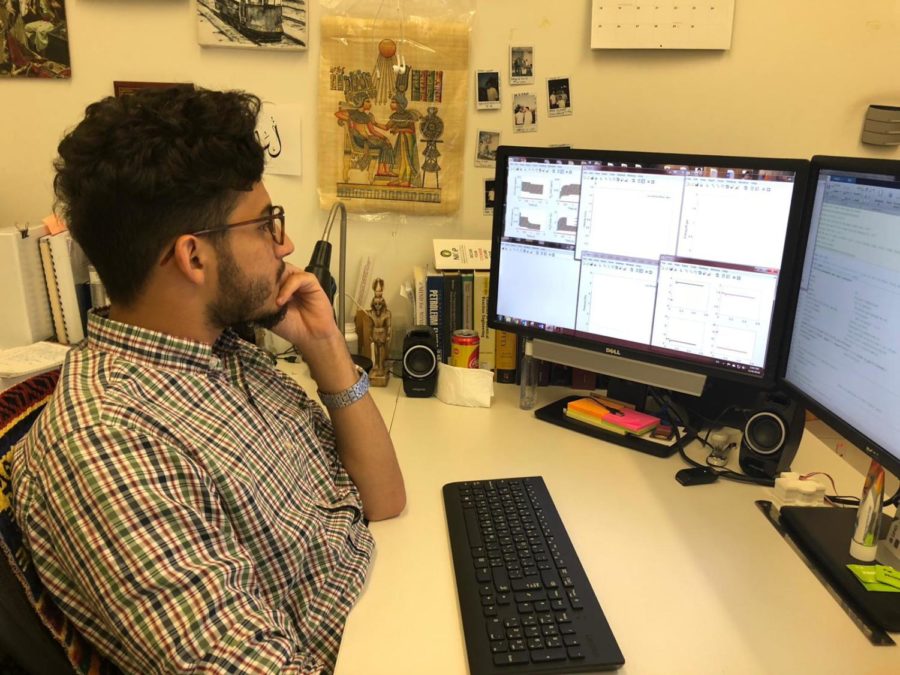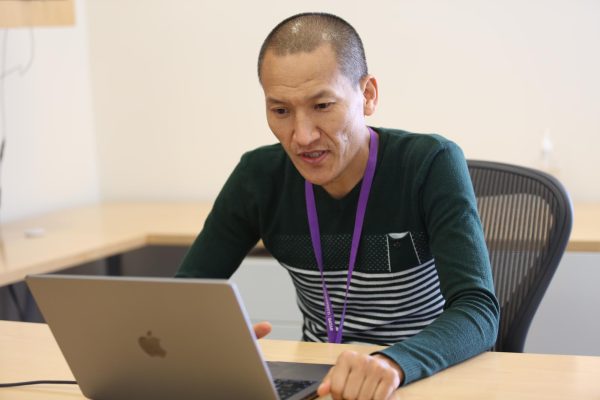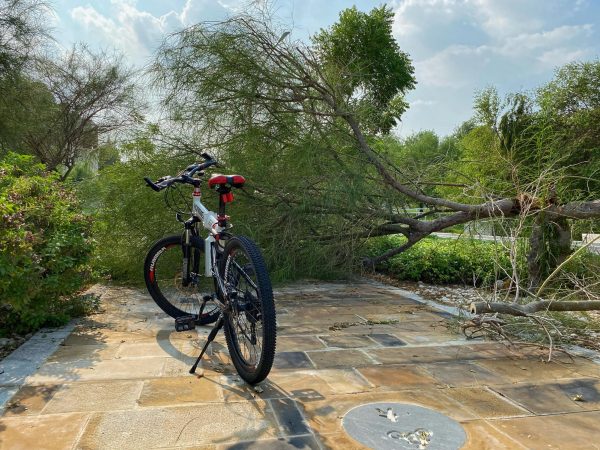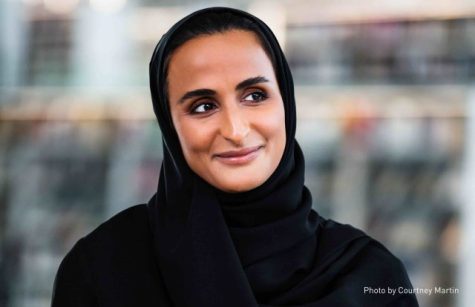The Research Landscape in Education City: A Fertile Ground Calling Curious Minds
For some students, the word ‘research’ comes with fear and confusion at first. “It was scary, and I knew it was hard, but I sort of wanted to get involved. I wanted to know more,” said Kuan Han Chen, a first-year pre-medical student at Weill Cornell Medicine Qatar.
For undergraduate and graduate students alike, Education City universities have allowed a significant number of student to get involved in academic research.
Studies suggest that undergraduate research is extremely valuable for students. It broadens students’ experience beyond the scope of academia and helps them understand the way knowledge is constructed.
Below, student researchers from different Education City universities share their research experiences and give us a sneak peek into their research projects. These interviews have been edited for length and clarity.
Undergraduate research
Krishnadev Pillai is a freshman at Weill Cornell Medicine-Qatar and has been conducting medical research during his time as a medical student.
What is your research project about?
“Our research explores the role of human gut microbiota in the study of diseases such as Autism Spectrum Disorders and IBD. As a pilot study in this field in Qatar, we aim to assess the readiness of the population in Qatar to research in this field in addition to producing data about the correlation between the gut microbiota profile and the aforementioned conditions.”
How does it feel to conduct research in EC?
“There is plenty of opportunities to pursue biomedical research in Education City. In addition to numerous opportunities within WCM-Q for pre-medical and medical students alike, there are external opportunities in institutes such as Qatar Biomedical Research Institute.”
Abdul Rehmaan Qayyum is an international economics sophomore at Georgetown University in Qatar and a student researcher.
Tell us about your student research projects.
“I work as a student researcher for Dr. Zehra Babar and Dr. Mehran Kamraya. My research for Dr. Babar focuses on immigration patterns within the Gulf countries, especially Qatar. For my second research work for Dr. Kamraya, I studied the political landscape of Iran. The most interesting fact about my research is that I get to understand the mass movements of people, even from my country, Pakistan.”
What are some of the interesting findings of your research?
“Out of all our findings, the role of female headship fascinates me the most. After researching how family members migrate, it is the women who take the responsibility for all the tasks, and in doing so, they gain a sense of empowerment. This, especially in rural areas, might highly promote schooling and empowerment of girls. It directly challenges the stereotypes presented today.”
Muhammad Humam is a communication junior at Northwestern University in Qatar and a research assistant.
Tell us about your student research projects
“The first research I was involved in examined people’s perception of the National Museum of Qatar. The old museum was demolished and a new one was built. As a part of the research project with Dr. Jocelyn Sage Mitchell, we were looking at what people remember of the old museum, what they expect from the new one, and how the national museumaeffects public imagination. The second research, with Dr. Susan Dun, was about migrant workers and how they use health facilities. The process of this research consisted of interviewing migrant workers, getting to know which health facilities they have, and then helping them to better use these facilities. This was accomplished through the use of health communication cartoons, pictures, and drawings.”
How does it feel to conduct research in EC?
“Research in EC is a lot of fun. It has its own set of challenges, especially in social sciences since you deal with the complexities of human beings. You learn a lot about handling deadlines, people, and processes since research is an ongoing process.”
Rashid Al-Haidous is a chemical engineering senior at Texas A&M University in Qatar and a student researcher.
What is your research project about?
“My research aims to improve the stability of the graphene oxide, which is a derivative form of graphene. It is used heavily as a filter for water treatment as well as other applications where filtering is required. The challenge that the use of graphene oxide imposes is stability. That’s exactly what we are working on. We want to improve its stability.”
How does it feel to conduct research in EC?
“Doing research in EC is a golden opportunity. You get easy access to world-class researchers due to the accessibility to research in EC. In other university settings, where the ratio students to professors is high, there is not enough access to opportunities. Whereas in EC, the overall ratio is low, which allows enormous opportunities for students to get involved in research projects.”
Aaqifa Altaf is a graphic design senior and a design studies research assistant at Virginia Commonwealth University in Qatar.
What is your research project about?
“The research aims to develop effective health and safety signing systems for construction workers in Qatar. We have been studying multilingual typography and illustrative color systems that are used in existing construction signage. The main aim of the project is to increase health and safety on construction sites by ensuring that the necessary instructions reach the workers and that it’s understandable to them by any means, such as writing signs in their own language or graphical representations.”
How did you get involved in research?
“I initially read about the position in Tech4Work website, but I was also contacted by the professor in charge. My interest in the field of applied research was what got me interested in this specific project and I was aware that we will be going to construction sites, construction companies, and to field studies to photograph available signage. A lot of research into cultural influences, its illustration styles, and the idea of finally contributing back to society by working on developing more effective signage got me more excited to take a part of this research.”
Graduate research
Involvement in undergraduate research can put a student on the right track to graduate school. Osama Desouky, a graduate student at TAMU-Q and a former undergraduate student of the same university, said he benefited from his experience as an undergraduate student researcher when it came time to pursue graduate studies.
Dawood Hjeji, a sustainable energy master’s of science student at the HBKU College of Sciences and Engineering, said that 95 percent of his university colleagues are student researchers, or are involved in some sort of graduate level research. To him, this reflects the importance of research as the cornerstone of pursuing graduate education in Education City.
Osama Desouky is a Master of Science in Chemical Engineering student at Texas A&M University.
How did you get involved in research?
“I got involved in research through my professor during my undergraduate studies. I found myself interested in joining a project which sums both majors, chemical engineering, through the catalyst modeling side, and mechanical engineering, through the engine performance testing. I enjoy research because I get to know how engines work, how we can develop new engine codes, and how engine control strategies and tuning operate.”
What are some of the interesting findings of your research?
“Personally, it was interesting to know that the catalyst reduces over 90% of harmful emissions to the environment. As well as the way engine controls and tuning works. I was surprised to model a whole vehicle with a code, showing power and emissions.”
Furqan Tahir is a sustainable energy doctorate student at Hamad Bin Khalifa University. His research thesis examines modeling of desalination plants to find room for their improvement.
Why did you choose to pursue research?
“I believe that if you are an educated individual, you have the responsibility to work for the betterment of society and by doing the research you are, first, educating yourself, and second, solving problems that will have a positive impact on society.”
What are some of the interesting findings of your research?
“Right now, research is in progress, but we are developing modified thermal desalination plants aimed to provide 70-100% more water production with the same amount of energy as in existing plants. A pilot plant with our proposed proposal is in the design phase, which has to be commissioned in Dukhan with the collaboration of Qatar Electricity & Water (the 2nd biggest company in the Middle East and North Africa in the field of power generation and water desalination) for design verification.”
Now, what?
It is undeniable that EC is a fertile ground for pursuing research. “The research culture in EC allows you to travel to present your work in conferences all over the world. I was amused when my professor sent me to meet other collaborators from the University of Houston,” said Al-Heidous. He added that it allows students to adopt different perspectives and develop new ways of thinking.
If you want to get involved in academic research, here is a compiled checklist of advice, from the student researchers interviewed above.
From student researchers to future student researchers:
- You must be ready to work. “Research involves a lot of readings, not novels or children story books, but Academic readings,” said Quayuum.
- Choose topics you are genuinely interested in. “Research can get intense at times. Having passion can drive you forward,” said Humam.
- Start as early as possible. “Don’t think that you don’t know how to do it or that you are not experienced. You need to seize the opportunities as soon as you can, and through failure and trial, you will be able to achieve something amazing,” said Al-Heidous.
- Ask professors and students if there is any project that you can join. “Don’t worry about getting something wrong, it’s a learning process and professors appreciate students who reach out to them,” said Desouky.
- Keep an eye open for the Tech4work and your university website. “They [Tech4Work] usually have a lot of great opportunities available from time to time,” said Altaf.
- Patience is the key to great research outcomes.
- We did it and you can do it!















